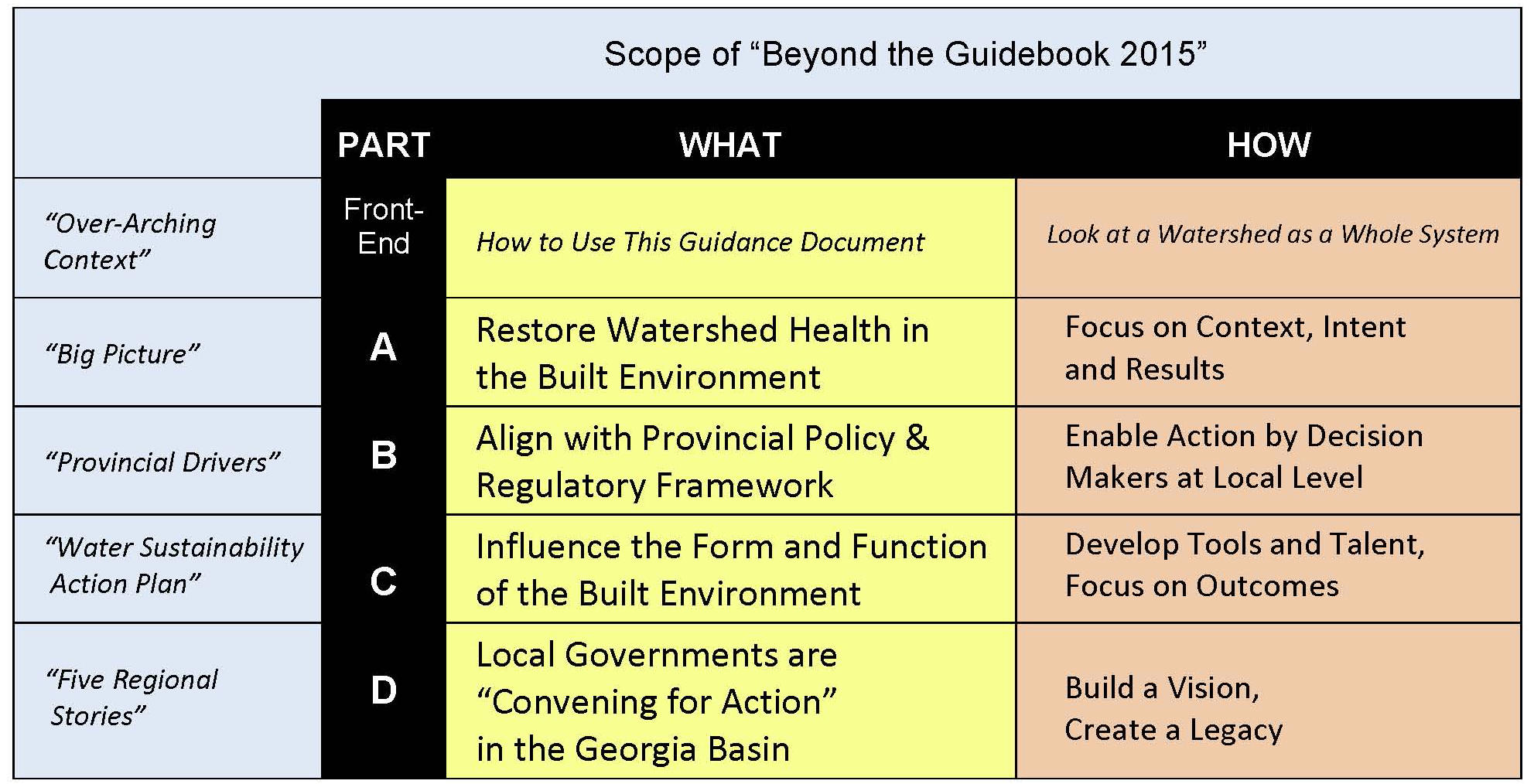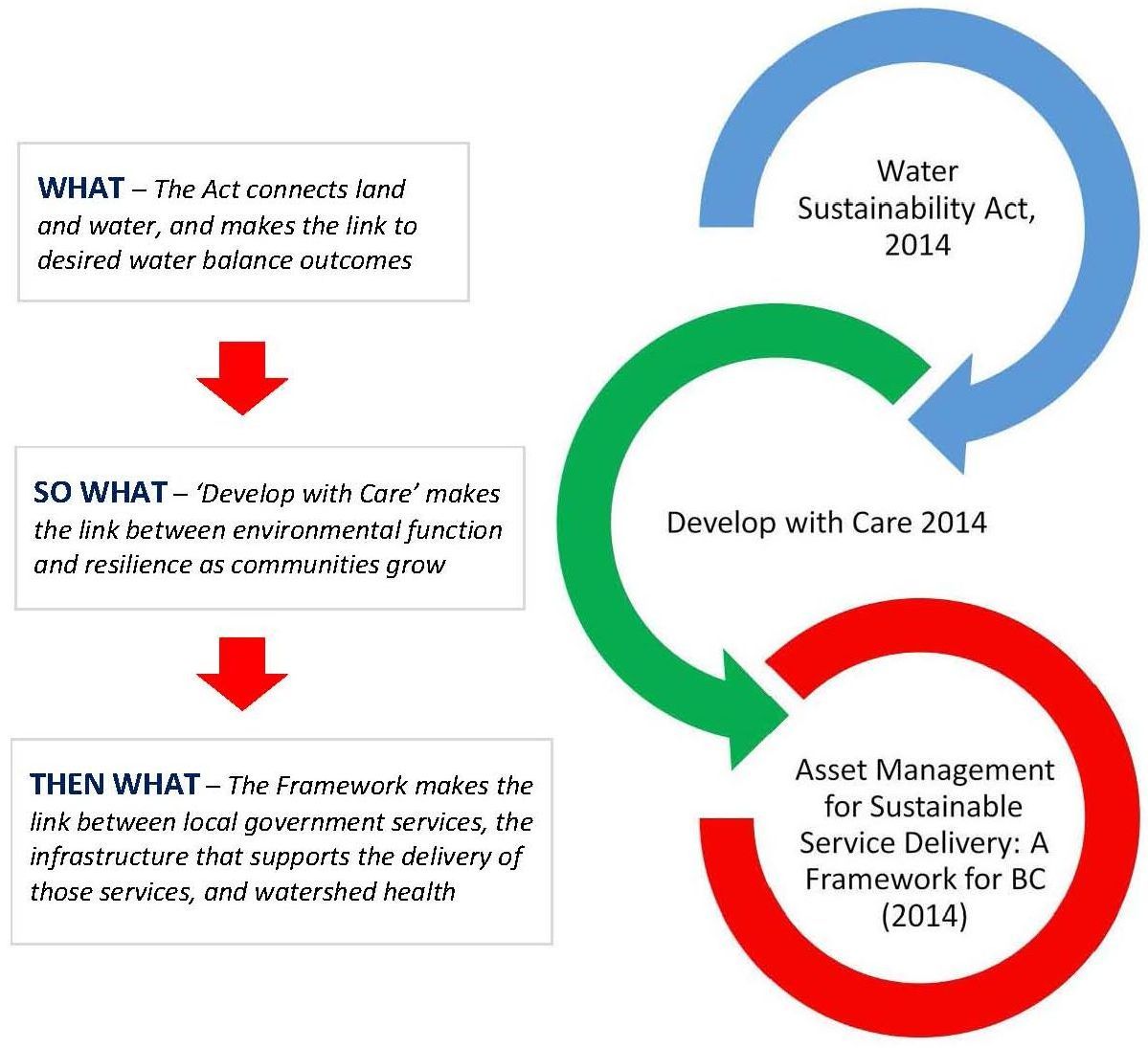Watershed Health: game-changers enable local government action in BC
Note to Reader:
Five regional districts representing 75% of BC’s population are partners in the Georgia Basin Inter-Regional Education Initiative (IREI). Released last November, Beyond the Guidebook 2015 is a program deliverable. Structured in four parts, it provides guidance for moving towards watershed sustainability. Part B is written for those who wish to understand the regulatory context in BC. It describes provincial game-changers for achieving the Watershed Health Goal. It is the subject of this e-newsletter. The purpose in featuring Part B is to draw attention to “the province’s story”.

To download a copy, click on:
https://waterbucket.ca/viw/files/2015/11/Beyond-Guidebook-2015_final_Nov.pdf
To view a set of articles about Part B and posted on the waterbucket.ca website, click on:
https://waterbucket.ca/rm/category/british_columbia_guidance_documents_context/beyond-the-guidebook-2015/provincial-drivers/
BC’s progression: from teachable year (2003) to call to action (2008) to game-changers (2014)
The collaborative process that culminated in Beyond the Guidebook 2015: Moving Towards “Sustainable Watershed Systems, through Asset Management” commenced in June 2013. The Capital Regional District hosted the inaugural meeting of the Georgia Basin Inter-Regional Leadership Team, representing five regional districts.
Then, in October 2013, the provincial government hosted a working session with the local government leadership team that set in motion the 2014 Inter-Regional Collaboration Series. These “sharing & learning” workshops addressed Watershed Health, and what local governments are doing to achieve it.
Showcasing the Province’s Story
There is a provincial story. But nobody has been telling it. Or is it more a matter of nobody connecting the dots? Part B of Beyond the Guidebook 2015 is intended to fill that gap. It connects the dots. It does this by linking the landmark initiatives that have been spearheaded by different divisions within different ministries. This should help convey how mandates, roles and responsibilities are aligned to achieve the Watershed Health Goal.
Part B is a synthesis of work by provincial government champions that is truly ground-breaking in scope and desired outcome. Part B is in their words. Accomplished through an interview process, the objective in crafting Part B was to be succinct. The challenge to the storytellers was that we would tell each of their stories in two pages maximum, including images.
Framing the Provincial Storyline
Interview emphasis was on identifying Key Messages – in other words, each storyteller was asked to be clear on what it is that land and water practitioners really need to take away from each story within Part B. So read the quotable quotes – they are revealing.
A breakthrough in how to communicate the Province’s story was framing the progression from “teachable year” (2003) to “call to action” (2008) to “game-changers” (2014). Things don’t just happen. It takes hard work by champions over a long period of time. Also, three game-changers (Water Sustainability Act, Develop with Care 2014, and Asset Management Framework) that came to fruition in 2014 are the outcomes of adaptive processes, as those leading change have learned by doing and made adjustments along the way.




